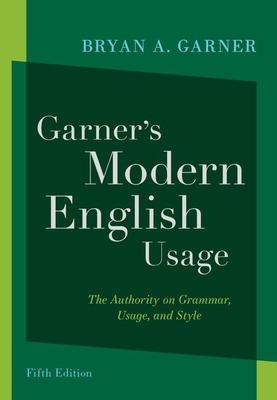
and style still "borders on genius." From the (lost) battle between self-deprecating and self-depreciating to the misuse of it's for its, from the variant spelling patty-cake taking over pat-a-cake in American English to the singular uses of they, Garner explains the nuances of grammar and vocabulary and the linguistic blunders to which modern writers and speakers are prone, whether in word choice, syntax, phrasing, punctuation, or pronunciation. His empirical approach liberates English from two extremes: from the "purists" who maintain that split infinitives and sentence-ending prepositions are malfeasances and from the linguistic relativists who believe that whatever people say or write must necessarily be accepted. The purpose of Garner's dictionary is to help writers, editors, and speakers use the language effectively. And it does so in a playful and persuasive way that will help you sound "grammatical but relaxed, refined but natural, correct but unpedantic."
and style still "borders on genius." From the (lost) battle between self-deprecating and self-depreciating to the misuse of it's for its, from the variant spelling patty-cake taking over pat-a-cake in American English to the singular uses of they, Garner explains the nuances of grammar and vocabulary and the linguistic blunders to which modern writers and speakers are prone, whether in word choice, syntax, phrasing, punctuation, or pronunciation. His empirical approach liberates English from two extremes: from the "purists" who maintain that split infinitives and sentence-ending prepositions are malfeasances and from the linguistic relativists who believe that whatever people say or write must necessarily be accepted. The purpose of Garner's dictionary is to help writers, editors, and speakers use the language effectively. And it does so in a playful and persuasive way that will help you sound "grammatical but relaxed, refined but natural, correct but unpedantic."
Hardcover
$61.00